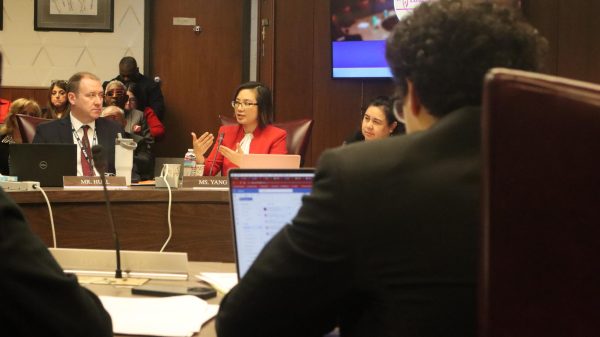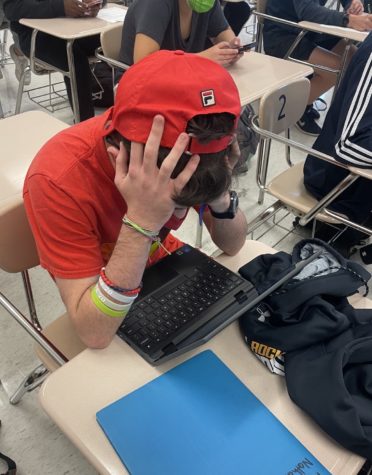VA schools wrong to withhold awards
Schools should not withhold honors or awards received by students.
March 23, 2023
A scandal involving at least three Virginia high schools has brought to light the rampant hypocrisy of the so-called “Equity Agenda” in play across three counties in Virginia. These counties were found to have withheld the notification of National Merit honors from various high school students. The involved schools and their superintendents are now under fire by parents, students and even the Governor of Virginia, Glenn Youngkin.
The National Merit honor is only awarded to 50,000 students from the top 1.5 million PSAT scores, making it one of the most prestigious awards a high school student can receive. For some, a National Merit award can make a radical difference in their acceptance to a prestigious university, bolstering their application, in addition to opening up financial scholarship opportunities. The news was broken on December 21, 2022, by Asra Q. Nomabi in the City Journal, revealing over five years of National Merit awards being withheld from students, a majority Asian, at Thomas Jefferson High School for Science and Technology. Since the news broke, the Virginia Attorney General has broadened the investigation from the original pool of high schools to include 3 counties and a total of 16 Virginia public schools that have hidden the successes of hard-working students.
In an interview with the Washington Post, governor Glenn Youngkin claimed that the events, affecting at least 1,200 students, began with an “Equity-centered Strategic Plan” in Fairfax County. This idea, according to Youngkin, came from a consultant for a Fairfax County superintendent who set a goal of “equal outcomes for every student, without exception.” While equal opportunities are important, it should never be achieved through the purposeful neglect of deserving students. While this effort to ensure equity has positive intentions, it has been a drastic failure, even sparking conversations that these students’ civil rights have been breached. This investigation has prompted the question: When does the pursuit of equity become unjust?
Equity in our school systems should be a positive thing, enhancing equal opportunities, fair funding to counties, and public school curricula that encourage all students to pursue higher-level courses. Although it is widely agreed upon that equity is something that should be pursued in the public education system, the type of “equity” that these Virginia schools offer has fallen short. Youngkin said, “There’s clearly been an effort to bring down the standards for our students in Virginia to stop celebrating excellence.” Thankfully, Youngkin, whose gubernatorial agenda makes education a priority, has been adamant about resolving the issues revealed in the scandal, proposing a bill that would make it mandatory for schools to notify students and parents of awards as soon as they know.
Diminishing student achievement is unacceptable in every circumstance – especially considering the hours of studying, prep, and stress that goes into students’ test scores. “No student deserves to be deprived of their well-earned achievements due to some initiative,” junior Udy Mbanaso said. Despite having good intentions, it is obvious that it has caused more damage than relief.
This attitude, lowering standards and diminishing excellence in order to push an impossible equity agenda, is a damaging mindset for growing, ambitious students. “When you were younger, most kids probably received a trophy whether they won or lost something. It seems as if the schools are trying to do the same thing to not hurt people’s feelings,” said Mbanaso. Realistically, not everyone receives these National Merit awards. To give them out to everyone diminishes the importance of hard work and ultimately higher education in general; without those that try to reach higher, society would never improve. “I think that competitiveness is important because it makes, overall, for a better system than if everyone were the same because no one is motivated to do anything better,” junior Sarah Eliason said.
In an unjust and unethical manner, the true definition of diversity was dangerously twisted. The goal of education is not to make every student a carbon copy of one another, but to celebrate their various strengths and differences, allowing them to learn the value of hard work and succeed regardless of race, gender and individual academic level. Our public education systems must do better to uphold academic integrity and teach students to do the same.











